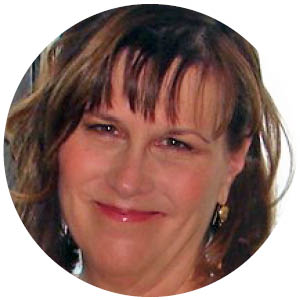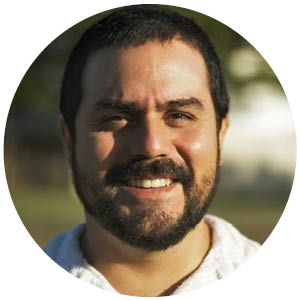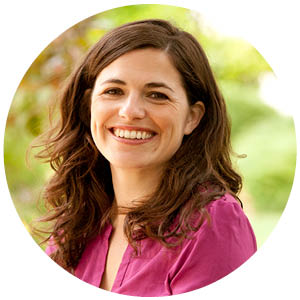Generosity that’s Bigger’n Dallas
Nov 2 2016
In March of 2016, RSF Social Finance facilitated its first joint Shared Gifting Circle with the Embrey Family Foundation. Located in Dallas, Texas, Embrey identified a group of six grant partners to participate. The grantees represented a mix of organizations focused on community organizing and the arts. Representatives from the six organizations came together for a day-long facilitated process to share project proposals and allocate $60,000 in grant funding. Embrey gave the grantee group complete control over how to divide the funds.
In this conversation, Kelley Buhles, RSF’s director of philanthropic services, discusses the inspiration and experience with Diane Hosey of Embrey and Circle participant David Lozano of Cara Mia Theatre Company.
Kelley to Diane: What inspired Embrey to experiment with a collaborative grant-making model like Shared Gifting? Have you done anything similar in the past? Did you have to get board approval?

Diane: Lauren Embrey, the president of the Embrey Family Foundation, met with Kelley to learn about the Shared Gifting model. It sounded like a good fit for us, and we treated it like an experiment. Of course, it turned out very well, and we are excited to explore how we can use it in the future and share it with other grantmakers in Dallas. Embrey had never done something so fully participatory in the past. The open, honest connection Embrey had previously fostered with its grantee partners primed the foundation to experiment with a model like this. We didn’t need to go to the board for approval because this fit into Embrey’s discretionary grantmaking pool of funds for the year. At our last board meeting, in the spring, Embrey invited a few of the Shared Gifting participants to visit with Embrey trustees and share their experience, so that the board could have a better understanding of Shared Gifting. They loved hearing about the experience directly from the grantees.
Diane to Kelley: What surprised you about this experience of working with a group of Dallas non-profits at the intersection of art and social justice?
Kelley: One surprise for us was how big of a difference it made to work in partnership with a local funder. All of the Shared Gifting Circles we facilitated in the past had been funded by money RSF raised. And as an intermediary, we found that grantees often had questions about where the money came from and if there would be future opportunities for funding. That dynamic shifted with this Circle because everyone knew who the funder was and knew that they were local. That change eliminated the need for organizations to question what RSF was doing there and allowed for the real conversations to begin. The Dallas Circle participants were obviously strong leaders in their community and passionate about their work. Instead of being intimidated about discussing money and each other’s proposals, we saw this group really rise to the occasion. We felt incredibly lucky to spend the day with them.
Diane to David: What is the most important thing you took away from this experience?

David: I have to admit that I was skeptical of the process at first. It kind of felt like we would be on the spot to make some tough decisions. I thought that people would be very protective of their funding, and I didn’t really know what else to expect. But then at the meeting, Ellie and Kelley from RSF were very personable and lighthearted in their approach and made it clear that we, the participants, could evolve this process into whatever we wanted it to be. There was no strict structure or format to follow. An intrinsic part of the approach is that we have to release our preconceptions, which is powerful because the next step is to engage in an authentic, genuine way with the other participants. In the Circle, I was able to process the other applications not just analytically but through the heart.
Kelley: The modern paradigm is that we are all in competition with each other. But if you study the natural world, you see that it isn’t always competitive and that collaboration can be equally as successful.
David: When we got there, I was surprised at how magnanimous everyone was—everyone was funding everyone else in the same way. It was a tough and emotional experience for me. It really hit home that this was the only time that I had ever been able to truly influence the funding of other artists and organizations that are run by and serve people of color. I had the opportunity to break the pattern of giving everyone the same amount of funding from their own pool, and so I ended up giving more to one arts organization because I knew about the uphill battle they were facing. It was difficult for me, and I felt I needed to explain it to the group so that they would understand why. But, the group understood why before I even opened my mouth. So, it was and still is a very moving experience for me as a man of color, an artist of color, in Dallas who feels overlooked in decisions affecting arts funding and arts policy.
 Kelley to David: Have you had any reflections since this experience?
Kelley to David: Have you had any reflections since this experience?
David: It made me reflect on a lot of things. In almost every funding experience I have and arts relationship I have, there is a gulf between the artists and the decision-makers of arts funding, resources, and policy. Non-arts people make the decisions, often because they are in positions of power due to private wealth. Typically, large white institutions benefit while smaller groups or groups of color miss out. What excited me from the very beginning about the Shared Gifting was that, finally, I would have a voice at the table. I am excited about the funding we received because we can now hire a new position: curator of community action. I think this role is in the spirit of Shared Gifting’s philosophy of including grassroots efforts into our work with the community. Our goal is to democratize the arts so that they can inspire a social movement in our city.
David to Diane: How did Embrey’s experience with Shared Gifting impact its work or future funding strategy?
Diane: The Embrey Family Foundation is going to sunset in about 8 years. We know our threshold for funding has hit the top of the bell curve, and we are coming down. It’s uncomfortable in some ways because we would rather play big. At the same time, these circumstances invite us, as an organization, to become much more creative in our thinking. It also moves us into the collaborative realm to seek out new ideas and new ways of doing funding and consider what we are funding. From this experience, we have learned that we can develop a learning community with our grant partners. Moving forward, we are going to look for more opportunities where we can have a similar impact and create more of a community experience rather than just granting out to organizations individually.

Kelley: How might collaborative or participatory grantmaking opportunities change the landscape of Dallas’s philanthropy?
David: I think that by moving decision-making opportunities towards the artists and arts organizations led by and serving people of color, we would have a much more equitable and productive arts community. Dallas is full of “arts deserts” where you don’t have any traces of the arts. Yet the attention on the arts is zeroed in on central Dallas and the Arts District, which receive the majority of funding and resources. Dallas is a city that is pumping millions of dollars into the arts, but the resources are being isolated to a small percentage of artists and arts organizations. If they were more equitably distributed, we would see a much more educated, energetic society. To revolutionize funding this way would actually transform our society.
Diane: Well, you can’t say it better than that. The arts can lead the way in many ways and capacities; it’s not an afterthought. We need to create “brave spaces” where people can experience each other in a different way and change the power dynamics even on the smallest of scales.
Photo IDs (from top to bottom): Diane Hosey, David Lozano, Kelley Buhles.
This article was originally published in the fall RSF Quarterly.